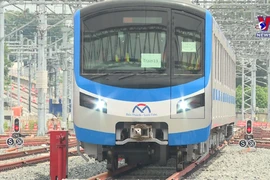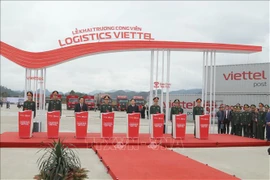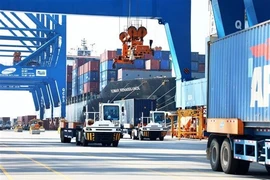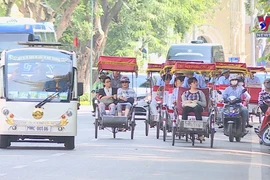In recent years, many Vietnam industries such as textile and leather manufacturing and electrical components export face challenges and opportunities in the industry 4.0 era. Industries are suggested to work hard and smart to make full use of the industry 4.0 innovation.
These industries contribute 35% to export goods of foreign invested enterprises in 2017. Foreseeing industry 4.0 booming in the future, many enterprises have invested in machinery and human resources.
According to Bang Hyun Woo, Deputy General Manager Samsung Vietnam, the company is heavily focusing on investing in machinery as well as a workforce of 1,800 people for research and development process.
"They are our main concern to promote competitive capability of our products," he added.
Industry 4.0 has opened up endless possibilities for all countries to develop. In Vietnam, electrical components and machinery reached a total import turnover of 37.5 billion USD in 2017, up 34.4% compared to 2016. The manufacturing industry group is benefiting in the 4.0 era.
Economic Expert Can Van Luc said by embarking on the 4th industrial revolution, enterprises can save both operational and management expenses, as well as human resources by up to 60%.
"It provides local enterprises opportunities to enhance competitive capabilities through improving production methods, services and goods quality and improved productivity," he added.
The technological advances in industry 4.0 bring value to many enterprises; however, they also pose threats and possible drawbacks to enterprises. To seize the opportunities, these enterprises have to expand their scope of production and make new investments.
Tran Thanh Hai, Deputy Director of Import-Export Department under the Ministry of Industry and Trade said "industry 4.0 requires us to renovate and improve our capacity to achieve higher value. Moreover, we need to use our intellectual capacity to create a more sustainable import-export environment."
According to a research by the International Labour Union, Vietnam is highly susceptible of job losses and unemployment if most enterprises apply 100% computerised systems. It is high time business management distributed human resources and improved the quality of workmanship to adapt to the immense changes of industry 4.0./.



















